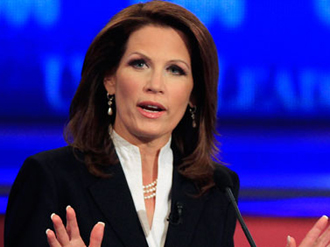The debt hysteria whipped up by the Tea Party’s minions has shattered the economic confidence rebuilt painstakingly the past three years, reminding the world that the U.S. remains hostage to a minority who yearn to return us to an agrarian economy.
In this regard, they share more in common with the Muslim fundamentalists we’re fighting than the rest of the modern world.
The debt-ceiling crisis has already cost investors about $2.4 trillion dollars of market valuation in U.S.-listed stocks alone, dropping the combined value of stocks traded on NYSE and NASDAQ from around $20 trillion to about $17.6 trillion during the past week.
If we look at global stock markets the impact is a loss of about $6 trillion from the $57 global stock market capitalization. That’s not even counting the value of other assets like commodities, real estate and ownership interest in non-public companies.
All this loss of wealth — at a time when the world can least afford it — is attributable to a movement that focuses spuriously on national debt as an indicator of our departure from the path of moral and economic righteousness. In the Tea Party’s earthbound view of things, national borrowing is akin to national decay because it reveals an inability to live within our means. Not only does this view ignore the realities of our modern credit-based economy, it seeks to destroy humanity’s collective faith in continuing progress.
Even after the cost of stimulating the economy out of the Great Recession and fighting wars in Iraq and Afghanistan, the level of U.S. debt isn’t excessive by the standards of other economically stable nations. At about $14.4 trillion, U.S. dept is 95.4% of estimated 2011 GDP of $15.1 trillion. By contrast, as of December 2010 the public debt-to-GDP ratio of Japan was 225%, Singapore, 102.4%, Belgium, 98.6%, Germany, 78.8%, S. Korea, 23.7%, China, 17.5%, Nigeria, 13.4%, Russia, 9.5%, and Equatorial Guinea, 4.1%. No one with knowledge of world affairs would say Russia or Chile or Equatorial Guinea have stronger economies than Germany or Japan or Belgium because their national debt levels are lower.
The reality is that moderately high debt levels are more reflective of a nation’s economic stability, dynamism and credibility than of economic or moral decay. That’s because, first, no one lends to a shaky nation, and second, because national debt is a useful instrument of forward-looking economic policy. It is a way for nations to channel fallow savings toward social stability and future prosperity by financing constructive, future-oriented goals.
To a great extent our modern world is built on debt. The phenomenal economic growth that the world enjoyed since World War II was financed by the huge loans that the U.S. made to the nations of western Europe and east Asia. Our own domestic economic boom was built on the growth of the use of credit to buy homes, cars, college educations and create businesses. Without the widespread use of credit, most of us would still be tilling the land to put food on the table, and heating our wooden homes with such firewood as we can chop.
Debt and credit are signs of our faith in each other and are premised on the continuing stability of our global economic system. To demand an abrupt choking off of the credit we are using to prime the economic pumps after a catastrophic collapse is akin to telling an obese person to stop eating for a few months to bring his weight under control. It’s the kind of simple-minded populist prescription aimed at sticking it to those who have prospered better rather than a prescription for progress.
Naturally, it is in our interest to bring down our national debt levels as our economy returns to strength. But we won’t be able to do that by demolishing the system of faith and credit that has financed the steady improvements in humanity’s collective prosperity. I just hope our leaders continue to have enough faith in the vast majority of Americans to resist falling under the sway of the kind of spite fueling the Tea Party.

